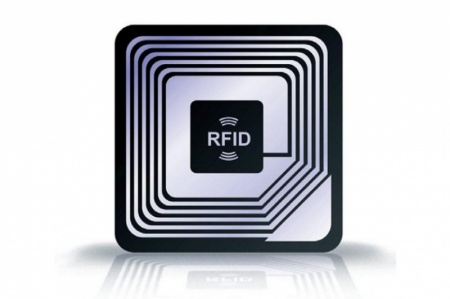Is The ‘RFID Retail Revolution’ Finally Here? A Macy’s Case Study
I remember back in 2000, my headline was something like, “Get Ready For The RFID Retail Revolution,” or, “Wal-Mart Kicks Off The RFID Revolution.”
Turns out the revolution never materialized. But it might this time around; at least that’s what retailers are hoping.
After nearly 20 years of aborted takeoffs—including a much-watched failed push by Wal-Mart —radio frequency identification technology finally seems poised for widespread retail adoption, if the renewed industry buzz on the inventory-tracking tech is any indication.
RFID automates the tracking of merchandise throughout the retail supply chain — from the warehouse to the store floor — replacing the process of employees scanning products manually.
And retailers are betting on RFID to take inventory-management accuracy, crucial to a solvent retail operation, to new heights.
Inventory management is that unsexy-yet-critical retail discipline that has gained infinitely more importance since my RFID story went to print 17 years ago.
Today, $427 billion in e-commerce sales are now flowing through the supplier-to-store/direct-to-consumer pipelines, exponentially complicating retail supply chains.
As the cost of RFID has fallen dramatically — a RFID tag was priced at about $1 in 2003, and is roughly 10 cents today —retailers are starting to upgrade to the technology to access an item-level view of their in-store and online inventory.
For Macy’s, RFID “is not a project, it’s very much integrated into how we do business,” Bill Connell, senior vice president of transportation, store operations and process improvement for the department store, said in an email message.
Macy’s set plans last year to expand its use of RFID to track every item across its fleet of stores and fulfillment centers by the end of 2018. “We are already halfway to this goal of tagging 100% of products,” he said.
So far, Macy’s has noticed “a big impact” on sales and profitability across several product categories from RFID, Connell said, but will not disclose actual figures until a full year has passed since its implementation.
But according to a presentation by Melanie Nuce, vice president of apparel and general merchandise for standards organization GS1 US1 at the Internet of Retail conference last fall, after Macy’s expanded RFID to its fashion departments, the retailer’s sales volume surged more than 200%, she said then.
Connell did say Macy’s has reaped both financial and operating gains from RFID. “With an increase in the inventory accuracy, out-of-stocks are significantly reduced,” he said. “And by cutting the out-of-stocks, item availability is increased, which can lead to substantial and measurable sales increases.”
Indeed, inventory accuracy and the resulting benefits are hailed as RFID’s biggest payoff. The technology raises inventory accuracy from an average of 63% to 95%, and reduces retail out-of-stocks by up to 50%, according to the RFID Lab at Auburn University.
As retailers are increasingly “selling inventory from their stores online” amid the growth of buy online, pickup in-store programs, an inaccurate read of where an item is at any given moment only compounds the potential for profit–draining markdowns, said Michael Kingston, a director in the digital practice of management consulting firm AlixPartners.
Source: Forbes




